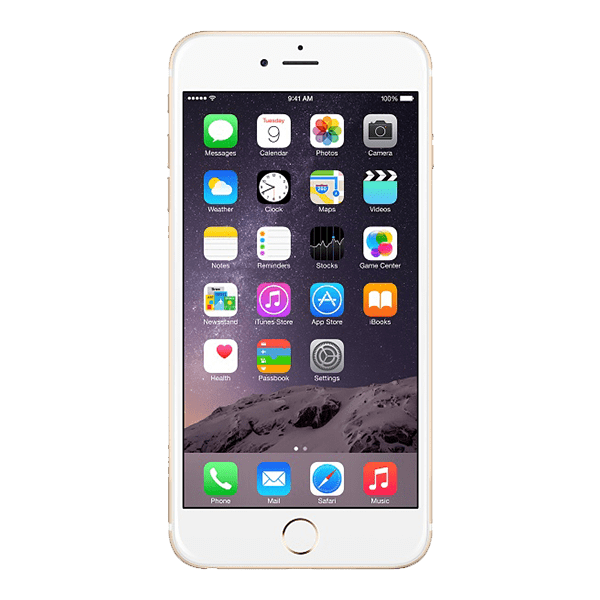
Last week, I deleted Facebook from my phone and literally doubled my battery life. Not just overnight, but instantly.
You can too–or, if that’s too extreme a reaction, there are a few simple things you can do to minimize Big Social’s impact on how often you need to recharge your phone. As an electric vehicle owner, I’m familiar with “range anxiety.” But I bought an iPhone 7+ specifically so my phone’s battery would last through the entire day. I’d only have to charge it once a day, or so I hoped.
Recently, however, it wasn’t even lasting most of the day.
So I checked which apps were draining the battery with Apple’s built-in tool.
Shockingly, Facebook accounted for 47 percent of my battery use during the previous 24-hour period. That day, I’d posted a few times, browsed for maybe 30 minutes in four or five sessions, but otherwise left the app to its own devices.
Those devices, apparently, are many. And constant. And (almost) all-consuming.
“Facebook’s app is a juggernaut of features, which is contributing to its usage of your phone’s battery, not to mention space,” says Aaron Hettler, an adtech exec with SRAX. “They include device location, notifications, quality and size of content, social interactions, live videos, statistics, contacts, places, groups, custom camera (which now includes a lot of animations, filters, and masks), and search, to name just a few. Simply opening the app fires up all these features.”
All that…in spite of the fact that I have “Background App Refresh” turned off in my iPhone’s settings. It’s one thing to have an app drain your battery if you’re constantly using it. It’s another thing entirely if it’s draining your battery while hidden in the background.
This might have something to do with the fact that the Facebook app–now on version 93–is a massive 388 megabytes, a far cry from the 5, 10, or 30 megabyte apps of just a few years ago. It might also have something to do with the fact that disabling background app refreshing does not actually turn off all background app activity.
I’ve built mobile apps, and that surprised me.
“Facebook’s mobile app is quite the memory and battery hog,” San Francisco-based mobile consultant Giacomo Balli told me via email. “Disabling background app refresh is certainly a good first step. However, this will not be your silver bullet. Apps still have some wiggle room when in ‘suspend mode,’ meaning in the background. Actually killing an app (by swiping up from multitasking view) will indeed be a good extra step.”
In addition, Balli says, Facebook can be labeled as a VoIP (voice over internet protocol) app, and therefore always be waiting in the background, ready to take a call. And Facebook can be monitoring your location at all times, which also drains battery.
After choosing the nuclear option and deleting Facebook, my phone’s internal battery made it through a full day of usage with 20 percent to spare. I was still using Facebook, but accessing it through a mobile Web browser instead of via the app.
But there are some less drastic options.
Gwen Cheni, a Bay Area hedge fund manager, tried “more benign solutions,” like turning off notifications and location. When that didn’t work, she eventually resorted to deleting the app entirely. After a while, however, Cheni downloaded Facebook Lite, a smaller, slimmer, simpler version of Facebook intended for developing countries with poor connectivity or expensive data plans.
Her conclusion? Facebook Lite eats significantly less battery.
Others, however, have taken different routes, like adding battery power.
“Personally, Facebook ate up nearly 20 percent of my battery,” says Eric Dolan, CEO of Neutun Labs, which makes a mobile medical device. “I had to buy a battery case just to get through the day.”
It is challenging to live without Facebook in our über-connected times. Many won’t be able to make that trade-off. And many others need Facebook not just for social connections but even more importantly for business relationships.
So what can you do instead?
Erica Johnson, an expert at mobile tech support service Asurion, provided the following suggestions:
- Turn off video autoplay
- Turn off location settings for Facebook
- Turn off Background App Refresh
- Turn off notifications for Facebook
- Don’t engage in long Facebook browsing sessions (two birds with one stone: This will also improve your productivity!)
- Completely quit the app when finished
- Turn down screen brightness
- In addition, if you have poor Wi-Fi, this can drain your battery significantly faster than normal for all activities, including Facebook usage
Personally, I’ll probably re-install the Facebook app at some point. It’s been good having longer battery life, but some critical aspects of the Facebook experience don’t work well on the mobile Web.
You can’t go live, for instance, with video.
When I do re-enter the Facebook matrix, however, I’ll try some or all of the suggestions above. The ultimate goal is to have my social and everything else my phone needs to do.

 John Koetsier is a journalist, analyst, and industry go-to. He’s worked with VentureBeat, Intel, Disney, and has been named to Folio’s top 100 of the media industry’s “most innovative entrepreneurs and market shaker-uppers.”
John Koetsier is a journalist, analyst, and industry go-to. He’s worked with VentureBeat, Intel, Disney, and has been named to Folio’s top 100 of the media industry’s “most innovative entrepreneurs and market shaker-uppers.”